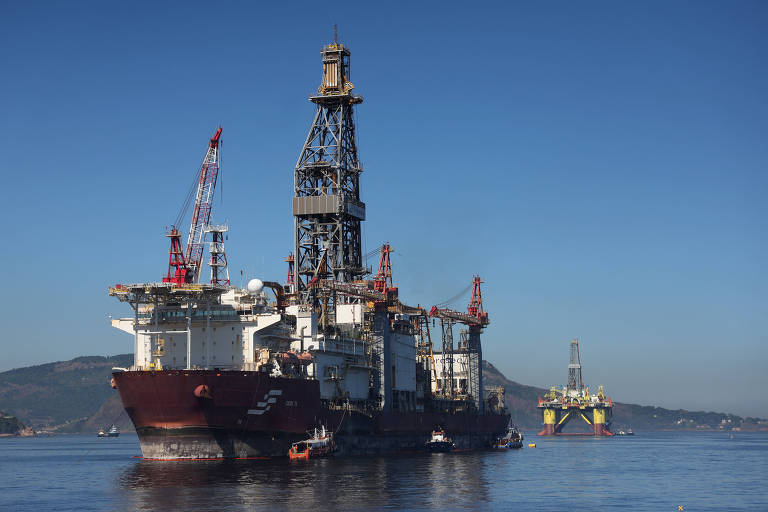Petrobras and Ibama reach agreement on crucial test for oil exploration in the mouth of the Amazon

Rio de Janeiro and Brasilia
Ibama (Brazilian Institute ofEnvironment and Renewable Natural Resources) and Petrobras reached an agreement to carry out the APO (Pre-Operational Assessment) at the mouth of the Amazon , an emergency simulation that is considered the last test for authorization to drill an oil well in the seas of Amapá .
In a meeting held this Tuesday (12), Ibama proposed that the assessment be carried out on the 24th or the week of the 24th, but the two technical areas understand that there are still details to be aligned before a final definition - this is because the region is difficult to access, the operation is complex and also depends on the movement of teams and equipment.

Publicly, however, some of Brazil's most influential parliamentarians are already pushing for this to be the day the tests are carried out.
Senate President Davi Alcolumbre (União Brasil-AP) released a statement celebrating the agreement between the two bodies and saying that the simulation "will probably take place on the 24th."
The government leader in Congress, Randolfe Rodrigues (PT-AP), even confirmed the outcome of the test, stating that on this date "we will take the final step before beginning oil research on the coast of Amapá."
Petrobras' Director of Exploration and Production, Sylvia Anjos, confirmed that the state-owned company has reached an agreement with Ibama regarding the implementation of a well drilling simulation in the Foz do Amazonas basin.
Sylvia declined to provide a date, saying the announcement would be made by Ibama. In a statement, the environmental agency said the results of the meeting with the state-owned company on Tuesday will be published "in due course" in the environmental licensing process.
The simulation is considered by the state-owned company to be the last step in obtaining the environmental license for the well, which is the target of protests from environmental organizations, who question the opening of a new oil frontier amid commitments to reduce emissions .
In a statement released early in the evening, following Sylvia's statements at an oil sector event, Petrobras stated only that "there was progress" in the meeting with Ibama regarding the simulation.
Petrobras has been trying to license the well for years, but has been met with resistance from Ibama's technical department. Vessels and equipment contracted for the project are in Belém, awaiting environmental approval, at a cost of approximately R$4 million per day.
In July, in a preliminary stage to the simulation, technicians from the institute inspected the vessels responding to spills, rescuing animals and also the new base for caring for the impacted fauna, built by the state-owned company in Oiapoque (AP).
The state-owned company even proposed that the simulation, called APO (pre-operational assessment), take place in the week of July 14 , but Ibama resisted the pressure and scheduled a planning meeting for this Tuesday.
The simulation aims to evaluate emergency and wildlife protection plans in the event of an oil spill.
The concern is heightened because this is the first well in a region with different environmental conditions than those found in the Campos and Santos basins, where most of Brazil's reserves are located, and because of its great depth.
Petrobras says it will use "the largest emergency response structure for exploratory drilling ever used by the company" in the well, with technologies that "seek to ensure greater precision, quality, productivity and especially safety in operations."
In February, Ibama technicians issued an opinion against the environmental license, requesting that the process be archived on the grounds that Petrobras' plan "does not present the possibility of rescuing numerous groups and species of megafauna, including those threatened with extinction."
In May, however, Ibama president Rodrigo Agostinho overruled this conclusion and authorized the drill using an alternative opinion. This week, Ibama technicians were in Belém and Oiapoque to inspect vessels and facilities.
uol






